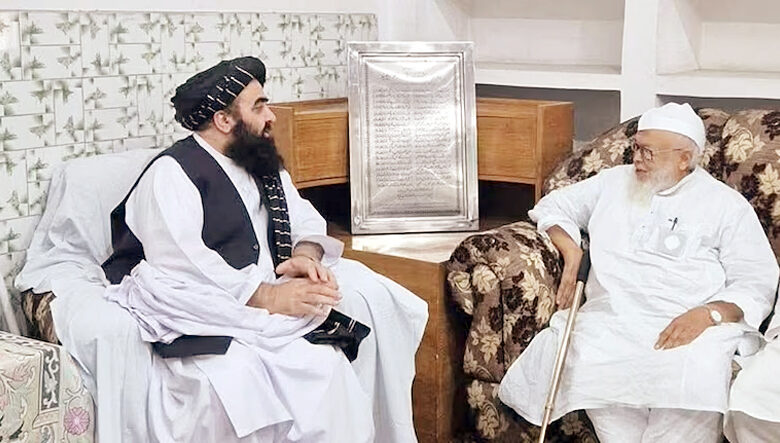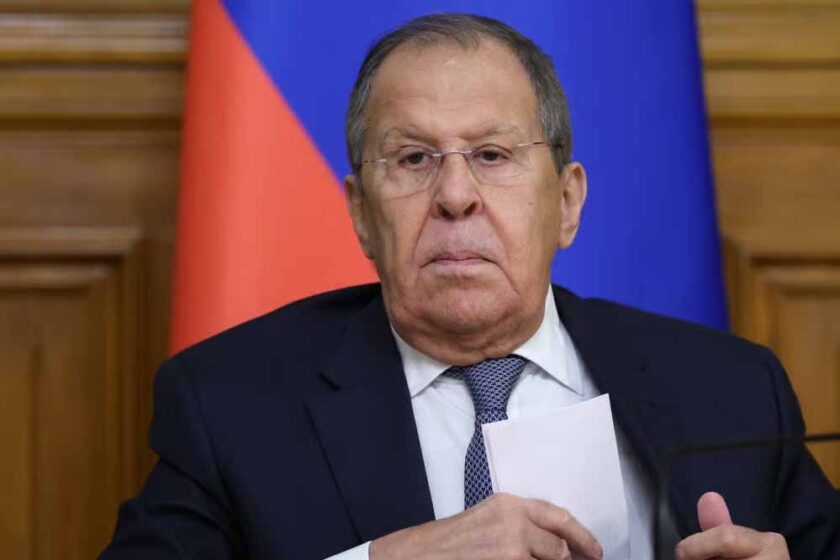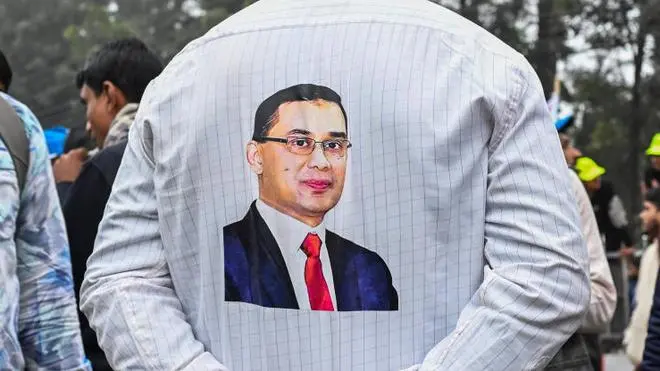Deoband: In a historic development, Afghanistan Foreign Minister Amir Khan Muttaqi visited Deoband, Uttar Pradesh, marking the first-ever official visit by a senior Taliban led Afghanistan minister to India. The visit, loaded with religious symbolism and geopolitical implications, has sparked widespread debate: Is this merely a spiritual homecoming or a strategic diplomatic signal?
Deoband – A Symbolic Stop with Deep Historical Links
Deoband is home to Darul Uloom, one of the world’s oldest and most influential Islamic seminaries, founded in 1866 after the 1857 uprising. The seminary played a key role in preserving Islamic scholarship under British rule and became the intellectual hub of Hanafi Sunni thought across South Asia.
Muttaqi offered prayers, met senior ulema, and interacted with locals.
“The affection from the people of Deoband is unforgettable. India-Afghanistan relations look bright and strong,” he said.
Ideological Roots: From Deoband to Pakistan
The Deobandi movement inspired institutions beyond India.
One such institution — Darul Uloom Haqqania in Pakistan (founded 1947) — adopted Deoband’s curriculum. Haqqania later became known as the “University of Jihad”, producing many top Taliban leaders and ideologues.
This makes Deoband a symbolic birthplace of Taliban ideology.
Diplomatic Undertone: More Than a Religious Visit
Before arriving in Deoband, Muttaqi held talks with India’s External Affairs Minister S. Jaishankar and NSA Ajit Doval in New Delhi — a major shift in India-Taliban engagement.
Experts say the visit signals:
✅ Taliban’s willingness to normalize ties with India
✅ India exploring pragmatic engagement for regional stability
✅ Use of shared religious heritage as a soft-diplomacy bridge

Darul Uloom spokesperson Ashraf Usmani stated, “We host guests from all over the world. Muttaqi was treated with the same respect as any visitor.”
Why It Matters
This visit represents the intersection of history, theology, and geopolitics.
- Religious Legacy: Deoband as a spiritual anchor for Taliban origins
- Strategic Intent: Taliban seeking legitimacy and support
- India’s Calculus: Balancing security, diplomacy, and cultural influence
A New Chapter?
Muttaqi’s Deoband stop is not just about faith, but a signal of shifting regional dynamics. It suggests that religion and diplomacy can merge to open new channels of dialogue.
As India and Afghanistan navigate this evolving relationship, Deoband may become the unlikely bridge between past legacies and future diplomacy.










